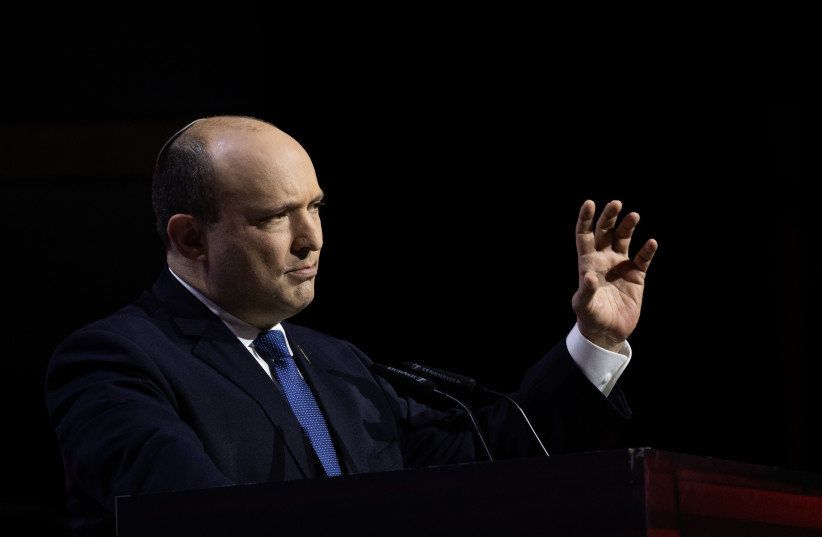More than half of Israelis do not believe Prime Minister Naftali Bennett will succeed in brokering an agreement between Russia and Ukraine to end the month-long war, according to a new poll by the Israel Democracy Institute’s Viterbi Family Center for Public Opinion and Policy Research.
The survey, which included both native-born Israelis and immigrants from the former Soviet Union, found that 30% of Israelis think there is a good chance that the mediation efforts will help end the fighting in Ukraine, 54% disagree, and 16% don’t know.
Nearly 90% of Jewish Israeli respondents agreed that the events in Ukraine should teach Israel that it cannot rely on international players to maintain its security and that the country can only rely on itself for defense.
Two-thirds of all respondents said they think that Russia, led by Vladimir Putin, is mainly responsible for the conflict. Almost half (48%) believe the scale of the humanitarian aid being provided by the State of Israel to Ukraine is appropriate, 23% think it is too little, 12% think too much, and 17% say that they don’t know.
Three-quarters of Jewish respondents say that Israel should prioritize humanitarian help for Jews in the conflict zones. Among Arab Israelis, only 27% think so.

Segmenting the Jewish public by political camps shows agreement among a large minority (48%) of the Left who think Jews should be prioritized for aid, 72% in the Center, and 83% on the Right.
Asked about the absorption of refugees and immigrants, 44% support absorption of refugees regardless of nationality, Jews and non-Jews alike. There was no substantial difference between immigrants from the FSU and other Jewish Israelis.
There are, however, major differences between the political camps among Jewish Israelis. On the Left, 74% support open immigration, 59.5% in the Center, and 31% on the Right.
Divided by level of religiosity shows that only 6% of haredim support such an open-border policy, 20% among the National Religious, 35% among the traditional-religious, 35% among the non-religious-traditional, and a majority of 60% among the secular.
In his speech to the Knesset on Monday, Ukrainian President Volodymyr Zelensky called for military aid from Israel, such as the Iron Dome missile defense system. Only 22% of Israelis said they would support the transfer of weapons and military equipment to Ukraine.
The poll was taken between March 14 and 17 among 501 Jews men and women who emigrated from the FSU, 400 Jewish non-immigrants and 103 Arabs, constituting a representative national sample of the entire adult population of Israel age 18 and older.
The maximum sampling error was 3.16%± at a confidence level of 95%.
